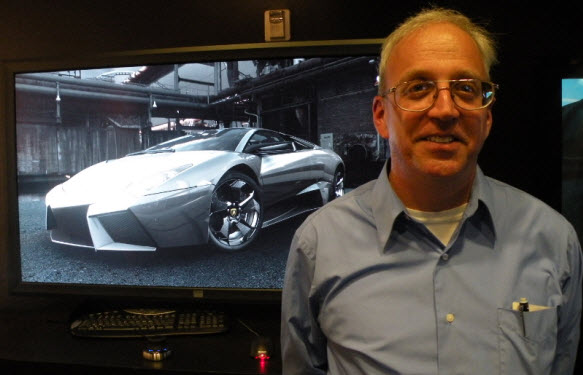 A team led by Nvidia has won a $25 million research grant from the Pentagon to create high-performance supercomputers that exploit the computational capabilities of graphics chips.
A team led by Nvidia has won a $25 million research grant from the Pentagon to create high-performance supercomputers that exploit the computational capabilities of graphics chips.
Santa Clara, Calif.-based Nvidia has been promoting this crusade for several years, and the award from DARPA (Defense Advanced Research Projects Agency) is an endorsement for it. Nvidia calls it GPU computing, after the graphics processing unit chip. Most supercomputers use collections of servers whose brains are microprocessors, or the central processing units made by Intel and Advanced Micro Devices. But Nvidia’s graphics chips are programmable and can handle non-graphics tasks. They are particularly good at number crunching and visual computing chores.
Under a four-year contract, the team plans to build a new class of “exascale supercomputers” that are 1,000 times more powerful than today’s supercomputers. The team includes Cray, Oak Ridge National Laboratory, and six top universities. The problem is that conventional supercomputers are starting to hit practical limits, since they can only do so much computation given a certain amount of electrical energy.
Bill Dally (pictured), Nvidia’s chief scientist and senior vice president of research, said the project recognizes Nvidia’s accomplishments in parallel computing and GPU computing. Several other teams also got DARPA contracts to work on similar systems. Prototypes are expected to be completed by 2018.


